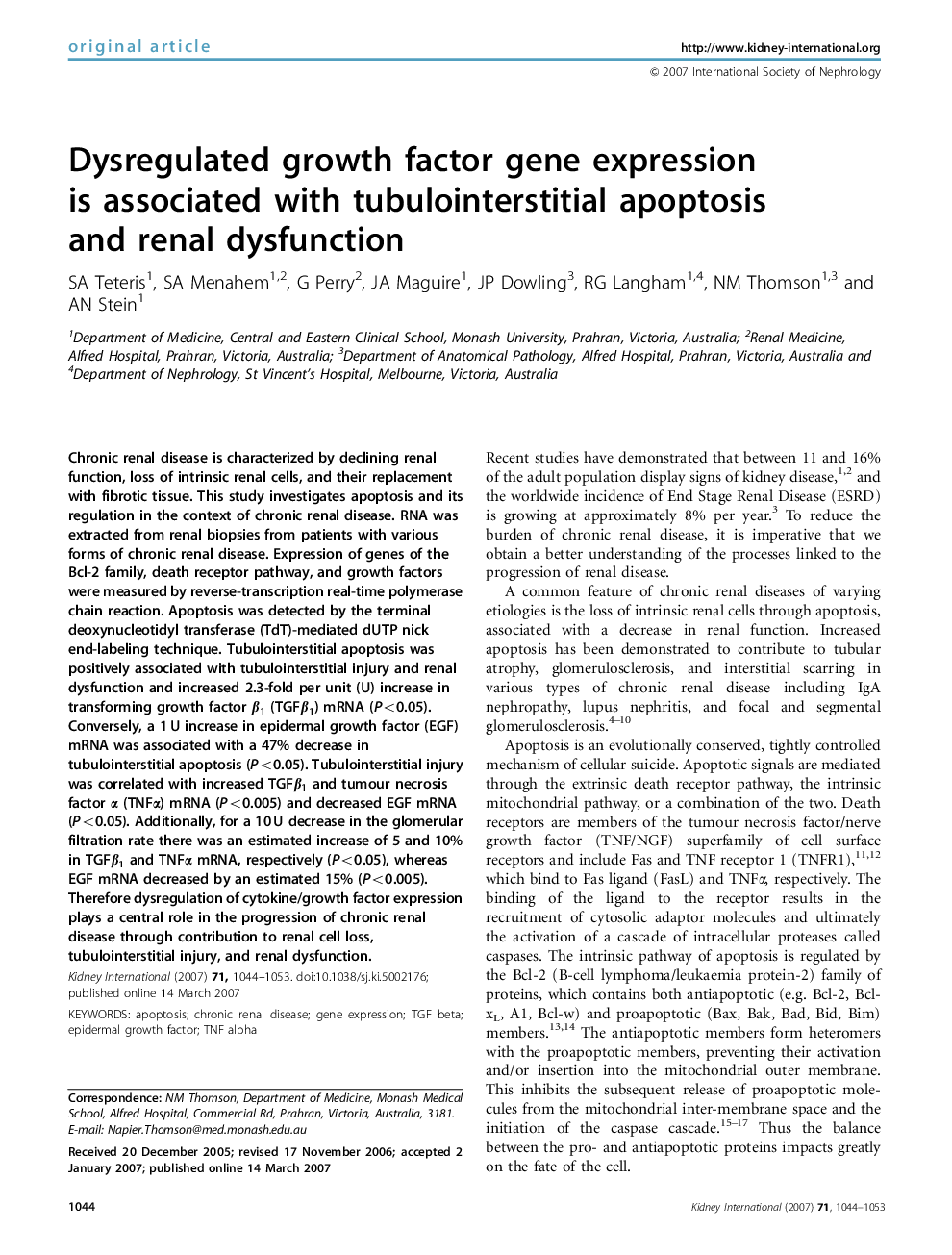| Article ID | Journal | Published Year | Pages | File Type |
|---|---|---|---|---|
| 3887320 | Kidney International | 2007 | 10 Pages |
Chronic renal disease is characterized by declining renal function, loss of intrinsic renal cells, and their replacement with fibrotic tissue. This study investigates apoptosis and its regulation in the context of chronic renal disease. RNA was extracted from renal biopsies from patients with various forms of chronic renal disease. Expression of genes of the Bcl-2 family, death receptor pathway, and growth factors were measured by reverse-transcription real-time polymerase chain reaction. Apoptosis was detected by the terminal deoxynucleotidyl transferase (TdT)-mediated dUTP nick end-labeling technique. Tubulointerstitial apoptosis was positively associated with tubulointerstitial injury and renal dysfunction and increased 2.3-fold per unit (U) increase in transforming growth factor β1 (TGFβ1) mRNA (P<0.05). Conversely, a 1 U increase in epidermal growth factor (EGF) mRNA was associated with a 47% decrease in tubulointerstitial apoptosis (P<0.05). Tubulointerstitial injury was correlated with increased TGFβ1 and tumour necrosis factor α (TNFα) mRNA (P<0.005) and decreased EGF mRNA (P<0.05). Additionally, for a 10 U decrease in the glomerular filtration rate there was an estimated increase of 5 and 10% in TGFβ1 and TNFα mRNA, respectively (P<0.05), whereas EGF mRNA decreased by an estimated 15% (P<0.005). Therefore dysregulation of cytokine/growth factor expression plays a central role in the progression of chronic renal disease through contribution to renal cell loss, tubulointerstitial injury, and renal dysfunction.
